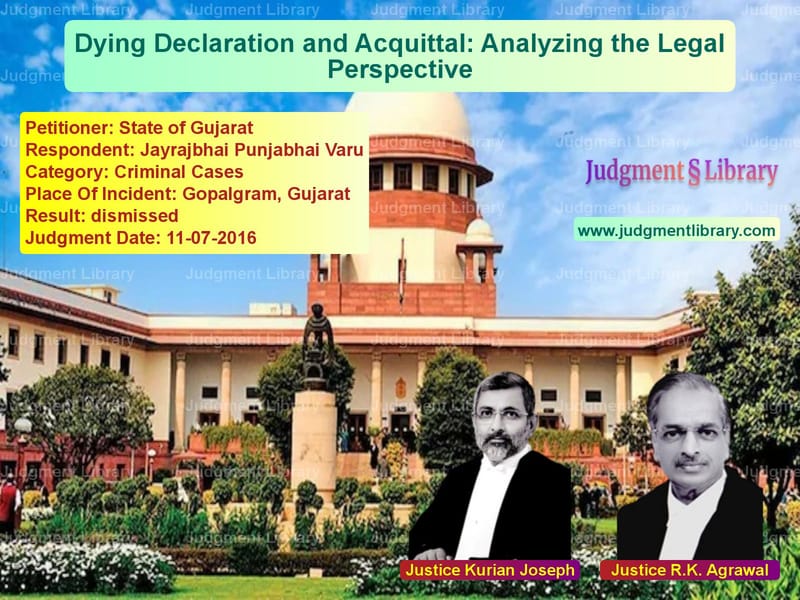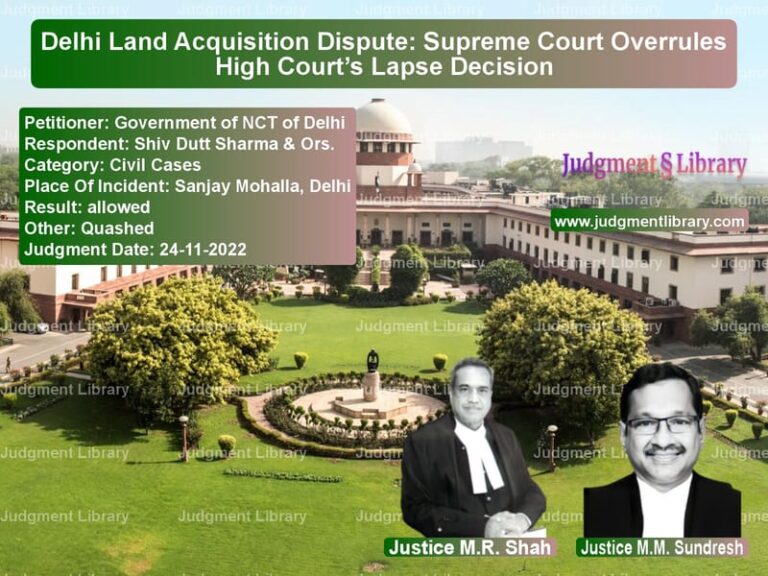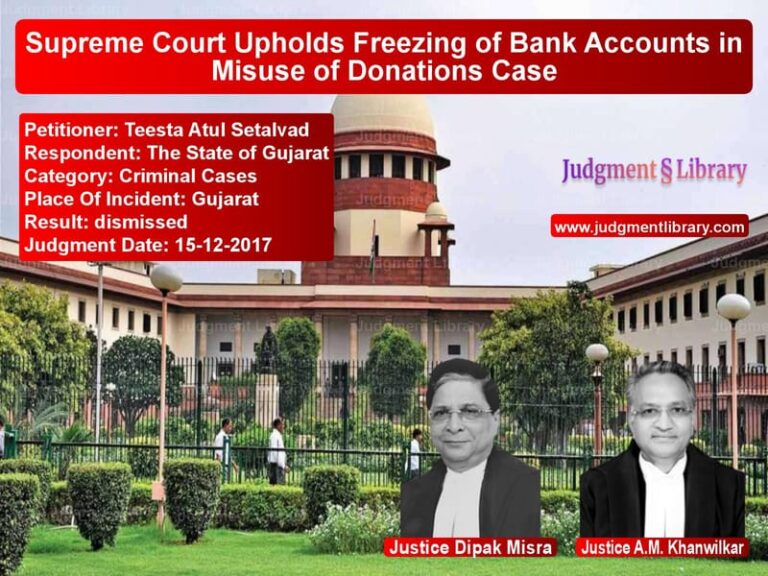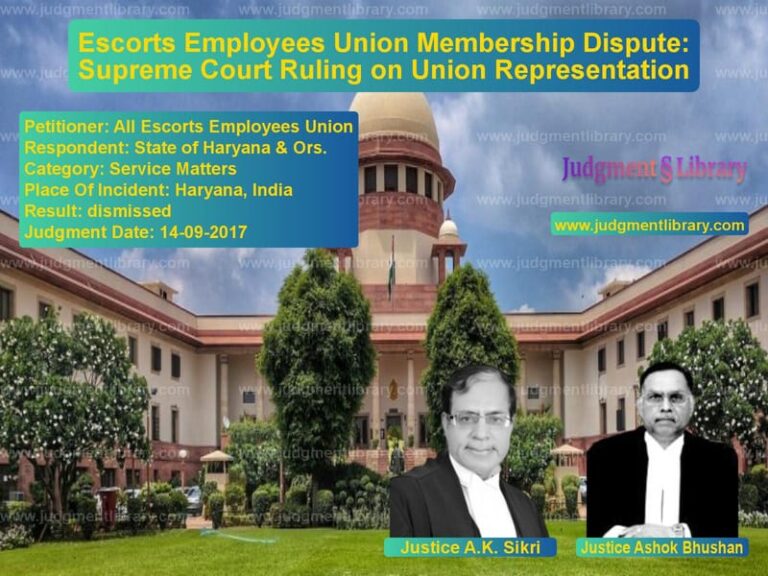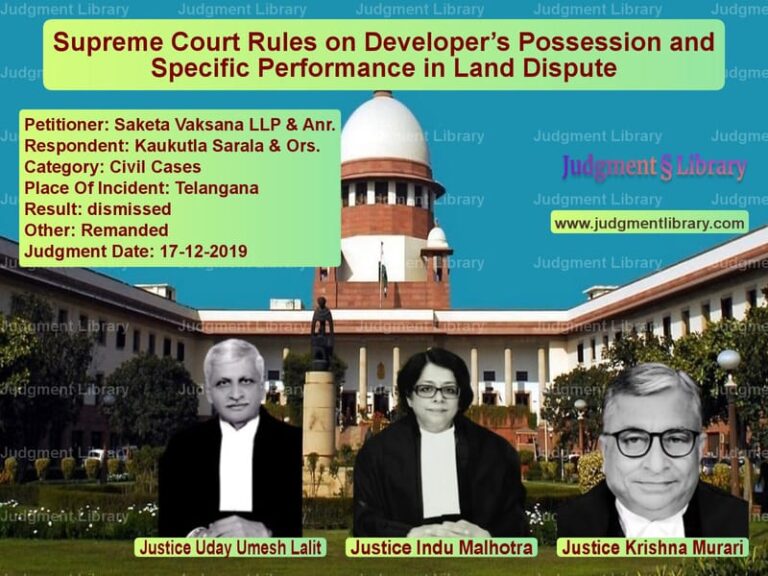Dying Declaration and Acquittal: Analyzing the Legal Perspective
The case of State of Gujarat vs. Jayrajbhai Punjabhai Varu revolves around the death of Rekhaben, who suffered 90% burn injuries and succumbed to them. The case brings into question the validity of a dying declaration and the role of circumstantial evidence in criminal convictions.
The prosecution argued that Rekhaben was tortured and set on fire by her husband and in-laws. However, her two recorded dying declarations did not name her husband or in-laws as the perpetrators. The High Court acquitted the accused due to inconsistencies in witness statements and the lack of direct evidence linking the husband to the crime.
Case Background
Rekhaben, married to Jayrajbhai Punjabhai Varu, was residing with her in-laws in Gopalgram, Gujarat. On the morning of March 10, 2003, she was found with severe burn injuries and was admitted to the Government Hospital, Amreli.
Her initial statement recorded by the police mentioned that an unknown person in white clothes set her on fire. A similar statement was recorded by the Executive Magistrate. However, her father later claimed she confided in him that her husband and in-laws were responsible.
Legal Proceedings
- The Sessions Court convicted Jayrajbhai under Section 302 IPC and sentenced him to life imprisonment.
- The Gujarat High Court overturned the conviction, citing inconsistencies in the prosecution’s case.
- The Supreme Court upheld the High Court’s decision, emphasizing that the recorded dying declarations must be given precedence over subsequent oral statements.
Arguments from Both Sides
Prosecution’s Arguments
The prosecution, representing the State of Gujarat, argued that Rekhaben was subjected to persistent torture and was ultimately set on fire by her husband and in-laws. Her father testified that she had disclosed the names of the accused before dying. The prosecution contended that:
- Rekhaben was mistreated and forced to return to her matrimonial home several times.
- Her father’s testimony was consistent with the circumstantial evidence.
- Section 114 of the Indian Evidence Act warranted drawing an adverse presumption against the accused.
Defense’s Arguments
The defense countered that the dying declarations recorded by independent witnesses explicitly stated that an unknown outsider committed the crime. They highlighted that:
- The deceased did not name her husband or in-laws in two separate dying declarations.
- Her father’s claim was delayed and could have been influenced by emotions or external pressures.
- The case lacked direct evidence against the accused.
Supreme Court’s Judgment
The Supreme Court ruled that the two dying declarations recorded officially carried more weight than an oral statement made to a relative. The court emphasized that:
- Dying declarations must be scrutinized carefully to ensure they are voluntary and truthful.
- If a declaration is consistent and made in a sound state of mind, it can form the basis for acquittal or conviction.
- The prosecution failed to establish guilt beyond reasonable doubt, and in such cases, the benefit of doubt must be given to the accused.
Conclusion
The judgment underscores the importance of procedural integrity in criminal trials. While the death of Rekhaben was tragic, the law mandates that an accused cannot be convicted based on uncorroborated testimony, especially when official records contradict it. The Supreme Court’s ruling in this case reiterates that justice must be served based on evidence, not mere suspicions.
Don’t miss out on the full details! Download the complete judgment in PDF format below and gain valuable insights instantly!
Download Judgment: State of Gujarat vs Jayrajbhai Punjabhai Supreme Court of India Judgment Dated 11-07-2016-1741873168603.pdf
Direct Downlaod Judgment: Direct downlaod this Judgment
See all petitions in Murder Cases
See all petitions in Bail and Anticipatory Bail
See all petitions in Judgment by Kurian Joseph
See all petitions in Judgment by R K Agrawal
See all petitions in dismissed
See all petitions in supreme court of India judgments July 2016
See all petitions in 2016 judgments
See all posts in Criminal Cases Category
See all allowed petitions in Criminal Cases Category
See all Dismissed petitions in Criminal Cases Category
See all partially allowed petitions in Criminal Cases Category

